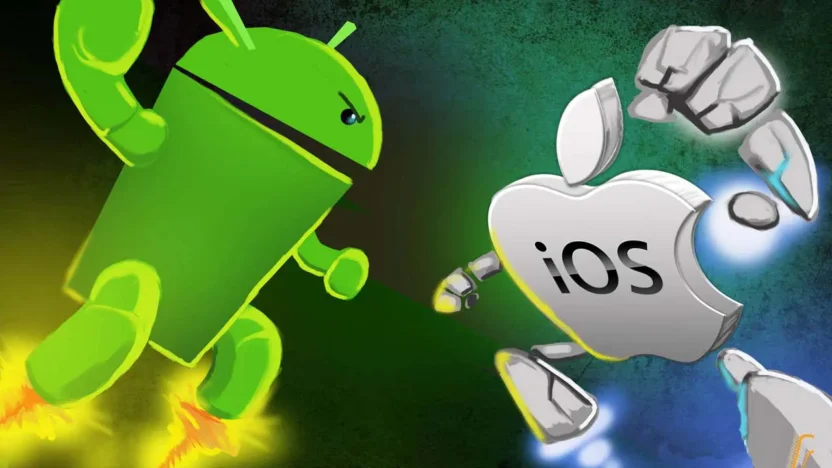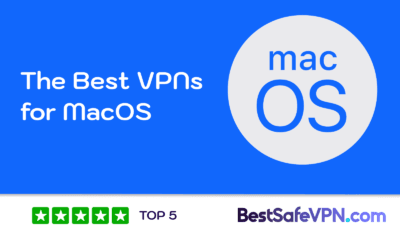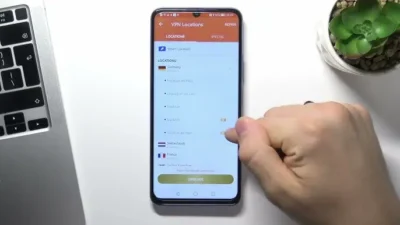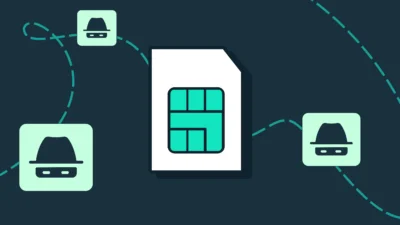Smartphones have become an integral part of our lives today. We have them at our fingertips from morning to night, relying on them for work, communication, shopping, and even watching our favourite shows. But with that comes a fundamental question: Is our data really safe? Every photo, every message, every password deserves maximum protection. And this is where the endless debate between Android and iOS fans begins.
Some claim that Apple is a fortress that hackers will find hard to conquer. Others say Android’s flexibility means you can tailor security to your liking. But who’s actually right? Is the iPhone synonymous with security, or can you enjoy the same sense of peace of mind with a carefully configured Android?
If you’re wondering which of these two giants will help you sleep better, you’ve come to the right place. Let’s dissect the pros and cons together – from app security to updates to how these platforms handle cyberattacks.
Are iPhones safer than Android devices?
If I had to pick a winner based on statistics and overall safety management, the iPhone would win the imaginary gold medal. Apple has incredibly tight control over its ecosystem. From apps to updates, everything is thoroughly vetted, minimizing the risk of security breaches.
On the other hand, Android is a much more open platform, which has its advantages, but also significant risks. Openness makes it easier for developers to create apps, but it can just as easily bring security problems. Moreover, because Android runs on a wide range of devices from different manufacturers, security can be inconsistent.

iOS boasts
- Better control over apps in the App Store.
- Less frequent security vulnerabilities due to closed system.
- Efficient and regular updates for most devices.
But Android is not lagging behind and is constantly working to improve its mechanisms. Google Play Store is tightening controls and Google is increasing rewards for security researchers for vulnerability discoveries.
App security: who has better protection?
🏆 Winner: iPhone
When we look at app security, Apple has a clear advantage. Every app in the App Store goes through a thorough vetting process, which may mean fewer apps to choose from, but it means less risk of running into a malicious app. Android, on the other hand, has a much more open approach – the Google Play Store offers a wider range of apps, but that’s why malware sometimes makes its way into the store.
Another problem with Android is the ability to install apps from unofficial sources, which is a route I would definitely not recommend. Apple restricts this option and thus minimizes the risks. So a simple rule of thumb: stick to the official stores.
Equipment manufacturers and integrated security
🏆 Winner: iPhone
Apple and its “all under one roof” approach is a key factor in its success. iOS devices are designed specifically to fit the operating system, minimising potential security vulnerabilities.
Android is a bit of a lottery, though. It depends on which manufacturer and model you choose. Samsung, for example, integrates additional security features like Knox, while other manufacturers may be a step behind. Therefore – if you choose Android, choose carefully.
Updates and patches: who’s faster?
🏆 Winner: iPhone
Apple is almost unrivalled in updates. Because it controls its entire ecosystem, it can distribute security patches and updates quickly and efficiently. iPhones are typically supported for up to 5 years, which is great news for those who like to keep one device for longer.
Android has a slight disadvantage here. Updates depend not only on Google, but also on individual device manufacturers. This means that some models may receive updates late or not at all. That’s definitely not ideal.
Security application support: how are both platforms doing?
🏆 Winner: tie
Here the situation is quite balanced. Both iOS and Android support a wide range of security apps such as VPNs, antiviruses and various encryption apps. However, if you want the best protection, reach for one of the verified VPN services. I recommend these top five VPNs that are definitely worth checking out:
- NordVPN – The absolute number one thanks to great speed, advanced security and useful features like Threat Protection.
- CyberGhost – The ideal choice for beginners and advanced users alike, with easy controls and fast connection.
- Surfshark – Features Multi-Hop and unlimited devices on one account.
- Private Internet Access (PIA) – A great option for anonymity and privacy with a wide range of servers.
- ExpressVPN – One of the fastest VPNs on the market with a high level of data protection.
Whether you have an iPhone or Android, these VPNs will help you stay safe online. They’ll protect your data, prevent snooping on public Wi-Fi, and prevent your activity from being tracked.
Open source: Advantage or threat?
🏆 Winner: iPhone and Android (each in their own way)
Apple protects its source code like a treasure. That means it’s harder for hackers to discover security holes. Android, on the other hand, relies on openness – its code is available to developers all over the world, which increases the speed of vulnerability detection. But this openness can sometimes be a problem.
However, Google tries to compensate for this by motivating security researchers with rewards for vulnerabilities discovered. This has significantly reduced the number of serious threats in recent years.
Popularity: How can it affect security?
🏆 Winner: iPhone
The population of iOS users is smaller than that of Android, which is a surprising advantage. Fewer users means less motivation for hackers. On the other hand, Android is the most widely used system in the world, which makes it a bigger target.
But that doesn’t mean Android users have to live in fear. Quite the opposite. With a wide range of security apps, they can secure their devices to a level that may even be better than iPhones.
Android vs. iOS: the threat of hackers
What is the reality? Both platforms can be hacked if the user does not protect themselves. While iOS relies more on software protection, Android uses a combination of software and hardware features.
If you want maximum security, a lot depends on how you behave online. Strong passwords, regular updates and using a VPN are the cornerstones of safe smartphone use.
How to stay safe on Android and iOS
- Only download apps from official stores. Third parties can be dangerous.
- Use strong passwords. Preferably unique for each application.
- Avoid logging in via Facebook. If your account falls into the hands of hackers, it can have serious consequences.
- Update your software in a timely manner. These updates often fix important bugs.
- Use a VPN. Protect your online activities from snooping.
For example, NordVPN offers users a Dark Web Monitor feature that will alert you if your information appears on the dark web. With one license, you can protect up to 10 devices at once, which is perfect for families or tech enthusiasts.
In conclusion, whether you’re an Android fan or you can’t get enough of your iPhone, security starts with you. Use common sense, don’t neglect updates, and if you really want to make sure your data is safe, a good VPN is a must.









